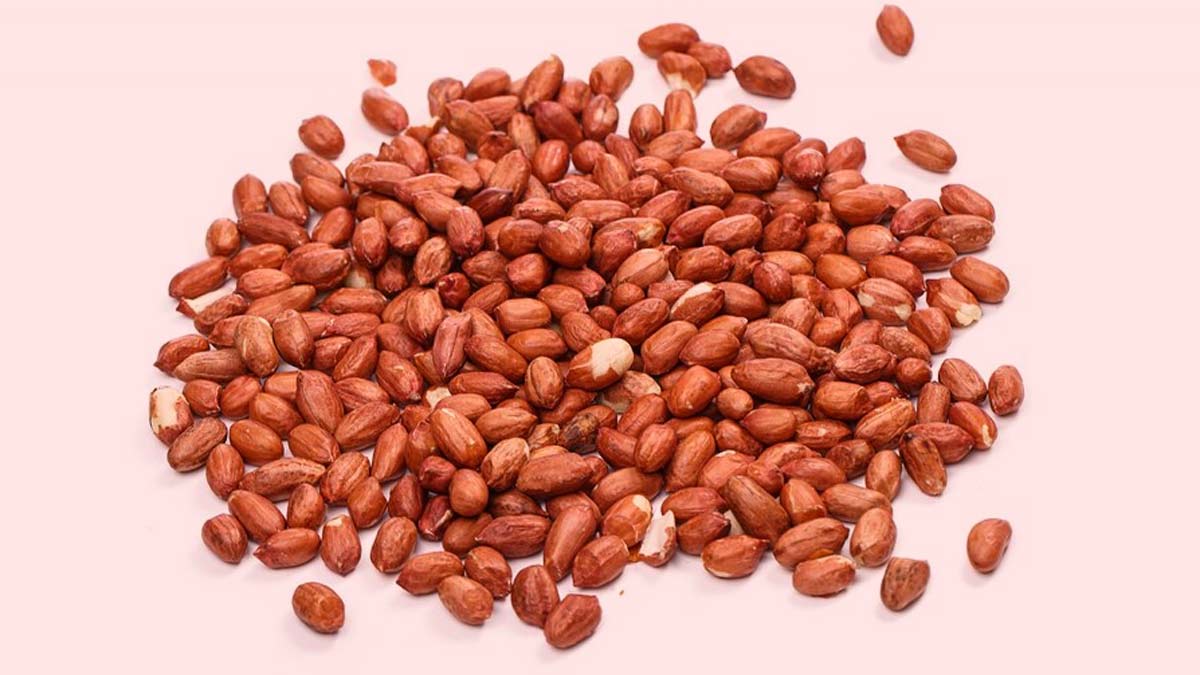
While peanuts are a nutritious food packed with protein, healthy fats, fibre, vitamins, and minerals, there are potential side effects associated with their consumption. It's essential to be aware of these side effects, especially for individuals with allergies or specific health conditions.
Table of Content:-
According to American College of Allergy, Asthma and Immunology, peanut allergies in children have increased by 21% since 2010, and roughly 2.5 percent of U.S. youngsters may be allergic to peanuts. Here are some potential side effects of eating peanuts:
1. Allergic Reactions
As per Mayo Clinic, there is an allergy called peanut allergy. For some people who are allergic to peanuts, even small amounts of peanuts can induce a significant reaction that can even be fatal.

Also read: Peanuts Vs Peanut Butter: Which Is Healthier?
Peanut allergies are among the most common food allergies, and they can cause severe reactions ranging from mild symptoms like hives and itching to life-threatening anaphylaxis. People with peanut allergies must strictly avoid peanuts and peanut-containing products to prevent allergic reactions.
2. Digestive Issues
According to ScienceDirect, fat content ranges from 44-56% and comprises mostly mono- and polyunsaturated fat, the majority of which is composed of oleic and linoleic acids.
Peanuts contain a high amount of fibre, which can be beneficial for digestion. However, for some individuals, consuming large quantities of peanuts or peanut products may cause digestive issues such as gas, bloating, diarrhoea, or constipation, especially if they are not accustomed to high-fibre foods.
3. Weight Gain
Although peanuts are nutrient-dense, they are also calorie-dense due to their high fat content. Eating large amounts of peanuts or peanut butter without considering portion sizes can contribute to weight gain, particularly if not balanced with other foods and regular physical activity.

4. Aflatoxin Contamination
Peanuts are susceptible to contamination by aflatoxins, which are toxic compounds produced by certain moulds. High levels of aflatoxin exposure have been linked to liver damage and an increased risk of liver cancer. To minimise aflatoxin exposure, it's essential to store peanuts properly in a cool, dry place and consume them within a reasonable time frame.
5. Oxalate Content May Harm Kidneys
Peanuts contain oxalates, naturally occurring compounds that can form crystals and contribute to the development of kidney stones in susceptible individuals. People prone to kidney stones may need to moderate their intake of high-oxalate foods like peanuts.
6. Potential Choking Hazard
Whole peanuts, particularly for young children, can pose a choking hazard if not chewed thoroughly. It's essential to supervise young children while they eat peanuts and consider offering them peanut butter or crushed peanuts instead.
7. Interference with Medications
Some studies suggest that the resveratrol found in peanuts may interact with certain medications, such as blood thinners (anticoagulants) like warfarin. Peanuts should be consumed in moderation by individuals taking these medications to avoid potential adverse effects.
8. Contamination with Allergens
Cross-contamination of peanuts with other allergens, such as tree nuts, soy, or wheat, can occur during processing, packaging, or handling. People with allergies or sensitivities to these allergens should be cautious when consuming peanuts and choose products labelled as allergen-free or produced in dedicated facilities.

9. Pesticide Residue
Conventionally grown peanuts may contain pesticide residues, which could pose health risks if consumed in large quantities over time. Choosing organic peanuts or washing conventionally grown peanuts thoroughly before consuming them can help reduce pesticide exposure.
10. Potential Impact on Blood Sugar
While peanuts have a relatively low glycemic index (GI), meaning they don't cause a rapid spike in blood sugar levels, consuming large quantities of sweetened or flavoured peanut products like peanut butter cups or sugary peanut snacks may contribute to elevated blood sugar levels, especially in individuals with diabetes.
Also read: Peanut Butter: 6 Options For Your High-Protein Breakfast
Peanuts offer numerous health benefits, it's essential to be mindful of potential side effects, particularly for individuals with allergies, digestive issues, or specific health concerns. Moderation, variety, and balance are key to enjoying the nutritional benefits of peanuts while minimising any associated risks. If you have concerns about consuming peanuts or peanut products, consult with a doctor or registered dietitian for personalised guidance.
Also watch this video
How we keep this article up to date:
We work with experts and keep a close eye on the latest in health and wellness. Whenever there is a new research or helpful information, we update our articles with accurate and useful advice.
Current Version